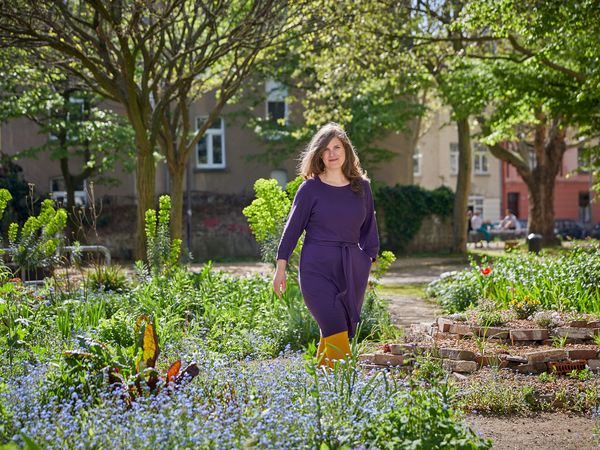Ms Karabaic, you have been pursuing the topic of sustainability for a very long time. Why is that
(Laughs) I think I'm just a convinced person. I first started dealing with these issues as a teenager, building toad fences, was active in Amnesty International... One of my basic driving forces is that I have a very strong sense of justice, and then it comes automatically that you are interested in sustainable topics.
Today you are the chair of the board of the association ‘the same in green’. Is it really so easy to find ‘the same in green’ for today's requirements?
It has never been as easy as it is today! There has been an enormous change in consumer behaviour, especially in the last ten years. I would say you can actually find everything in green. Even though the green market is booming, unfortunately there are many companies that are purely engaging in greenwashing. For consumers who are just getting into the topic, it is of course very challenging to recognise who is taking the topic seriously and who is not. ‘dasselbe in grün’ advises consumers and offers them the opportunity to check companies for their social and ecological actions with the help of a sustainability check that they developed themselves.
What advice would you give to people who want to live more sustainably?
I believe that every step is the right one, no matter how small. At the same time, it's important to look at the big picture. For example, if I get rid of my car, I'm obviously making a bigger contribution than if I drive my SUV to the organic grocery store. You should set yourself realistic goals: If you need a car to commute, getting rid of it is a huge undertaking, but as a city dweller, I can simply use car sharing if I overcome my inner pig. (laughs) My second tip is not to take everything on your own shoulders, but to work together with others for a change towards a resource-oriented and fair society and also to hold politicians to account. If certain products are no longer available by law no longer exist, you no longer have to make complicated decisions. It is also important not to be too strict with yourself, but to take action! And in this respect, a small step is always better than no step at all.
In 2008, you initially launched ökoRAUSCH as a trade fair for sustainable design. Today, ökoRAUSCH is a well-known and international festival. What do you think came first, supply or demand?
More than 3,000 people visited the first ökoRAUSCH event. We hadn't expected that at all. It seems that demand was already there in the wings. However, a larger supply also had to be created in recent years for the masses to accept it. Since the ökoRAUSCH festival has been held at the Museum of Applied Arts, visitors who have not yet been exposed to sustainable design have also been coming to us. They are often pleasantly surprised by the products, ideas and concepts presented there that they would not have categorised as ‘eco’. So we were able to inspire them with our concept and also motivate them to engage with the topic of sustainability and its background. As an organiser, I am of course very happy about that!
You live and work in Cologne. Your favourite green place?
It's very close by: the ‘Garden of the World’ is a community garden that was founded on the site of the former Ehrenfeld synagogue. It is home to plants from different cultures. In summer, it is a really beautiful and wild oasis that is open to everyone.
